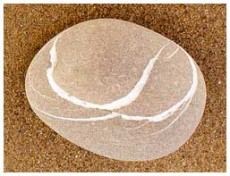Recently someone asked my husband, “who manages money in your family?”
No need to flip a coin for that answer. He said, “I do.”
I laughed and said, “Wait a minute. Give me a little credit. I work hard to do my part. Since I’ve retired, you now earn all the money. You pay all the bills, write out all the checks, complete all tax forms, watch the stock market, and handle any investments. I don’t pay attention to any of the income. I work the other side of the balance sheet. I manage the out-go. I do it well. See? I contribute too. I earn us loyalty points.”
My work as a psychotherapist and my teaching of mindfulness both focused on paying attention to life and to ourselves without judging anything as right or wrong. Rather than keeping a good/bad ledger, mindfulness of money, and thus of life, asks us to keep an attentive accounting of our process. There’s a saying in my work: “how you do anything is how you do everything.” Attending to any one thing reveals the whole. In other words, how we do money tells us something about how we do life.
Do you save calories or eat more than you need? Do you save money or spend more than you need?
Do you go for the latest fad in clothes? Do you go for fast money-making schemes?
How do you handle news you don’t like? A loss of a friendship? A loss in the stock market?
What do you do when you are not satisfied? Blame the messenger? Blame your broker?
And we classify: I spend/I Save. I donate./I hoard. I am care -less/I am care-ful. I get jealous/I feel satisfied. I am ambitious/I am laid back. I worry/I avoid. When stressed, I binge-watch TV/ When stressed, I binge shop. Money/life: same thing.
If money is a metaphor, then what does our approach to dollars and cents say about our approach to life? Good question, right?
This week my husband noted a charge on our MasterCard bill that he didn’t recognize: Equinox Moto, NY., December 29. We weren’t in New York on December 29th. He asked me if I’d ordered something. I said I knew nothing about a charge in NYC on December 29th. “Hmm. Nope, not me.”
He said, “It says Moto. Maybe it was a service for your car?”
I said, “I had it inspected in Maine and it cost eighteen dollars. Not the same amount.”
We were both stumped. I called the 800 number provided and–sure enough—I had made a purchase from a company called Equinox with our credit card on that date.
Oops.
Avoider (capital A) would be a polite way to name my relationship to capital. My specific money operandi –and, I hate to admit, my general modus operandi sometimes–might be called Ostrich: put my head down and hope someone else is paying attention. But, as spiritual leaders tell us, attention matters. In the end, we can’t cash in denial for a richer life. Zen teacher Charlotte Joko Beck wrote, “Attention or awareness is the secret of life. …with the gap created by inattention, everyone pays the price.” Note the pun.
The twist is that my husband does give me credit, both in our finances and in our lives. And of course, there would be a pay-off for everyone in my family if I would pull my head out of the sand. I won’t judge my Ostrich-ness. After all, ignorance was bliss, at least for a few years. But, at some point and usually by mid-life, we question our long-held life habits, especially the ones that are liabilities. We ask ourselves, “What is benefit/risk ratio of how I’ve invested my time, energy and attention?”
If we could answer that honestly and then close that gap created by our inattention, perhaps the actions that follow would be assets. You can bet money on it.




Beautifully said!